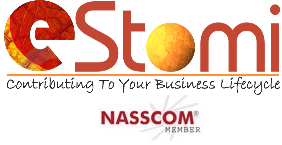eStomi prides on providing open source consulting. In a span of 4 years, it has built a world class team of open source consultants whose expertise range in Perl, PHP, Bugzilla, MySQL, Zabbix, Nagios, Joomla, Linux (Ubuntu, RedHat, CentOS, Fedora), Apache etc. More importantly, our experts have a good understanding of the domain and how open source technologies can be leveraged, especially when customers are in dire need of migrating from proprietary licensed solution to a better cost effective open source solution.
The term “open source” refers to something that can be modified because its design is publicly accessible.
As per Red Hat’s opensource.com website, while it originated in the context of computer software development, today the term “open source” designates a set of values—what we call the open source way. Open source projects, products, or initiatives are those that embrace and celebrate open exchange, collaborative participation, rapid prototyping, transparency, meritocracy, and community development.
Reach out to us to discuss our experience, talk to our open source experts to evaluate the solution/migration to help make a better decision. We assure that you’ll not be disappointed.
What’s the difference between open source software and other types of software?
Some software has source code that cannot be modified by anyone but the person, team, or organization who created it and maintains exclusive control over it. This kind of software is frequently called “proprietary software” or “closed source” software, because its source code is the property of its original authors, who are the only ones legally allowed to copy or modify it. Microsoft Word and Adobe Photoshop are examples of proprietary software. In order to use proprietary software, computer users must agree (usually by signing a license displayed the first time they run this software) that they will not do anything with the software that the software’s authors have not expressly permitted.
Doesn’t “open source” just mean something is free of charge?
The software is usually covered under AGL and is free to be downloaded and installed. However, there seems to be a common misconception about what “open source” implies. Programmers can charge towards the services for the open source software they create or to which they contribute. But because most open source licenses require them to release their source code when they sell software to others, many open source software programmers find that charging users for software services and support (rather than for the software itself) as legitimate. This way, their software remains free of charge and developers/programmers can cover their costs by providing services towards that software.
Why do people prefer using open source software?
Many people prefer open source software because they have more control over that kind of software. They can examine the code to make sure it’s not doing anything they don’t want it to do, and they can change parts of it they don’t like. Users who aren’t programmers also benefit from open source software, because they can use this software for any purpose they wish—not merely the way someone else thinks they should. Interested readers may read the blog on open source that we had published in 2011 based on our experience.
Open source technologies
We predominantly use open source technologies like Mod-Perl, PHP and MySQL with appropriate frameworks like Laravel or CodeIgnite to offer ITSM or BSM solutions.
For more information on service details, contact Connect@eStomi.net
